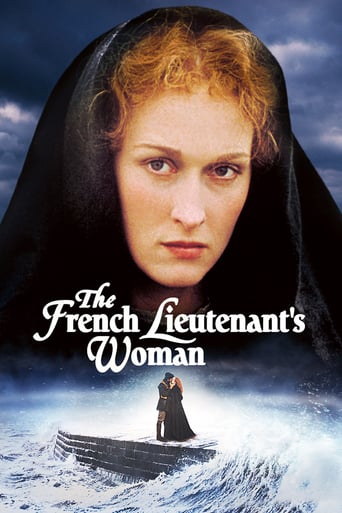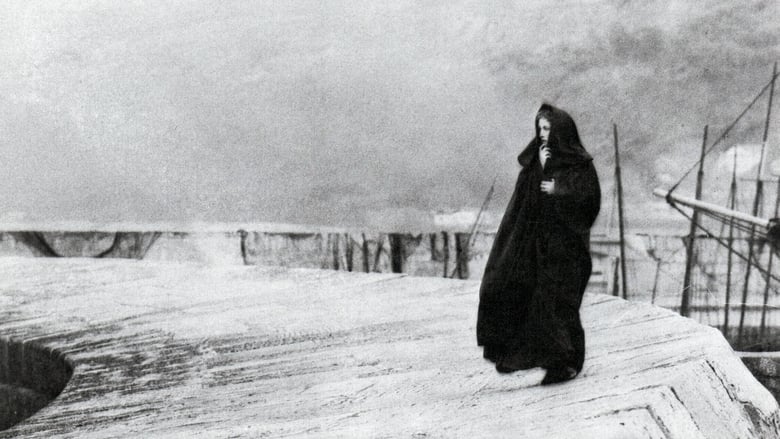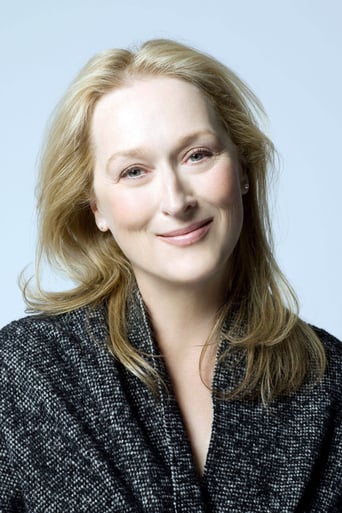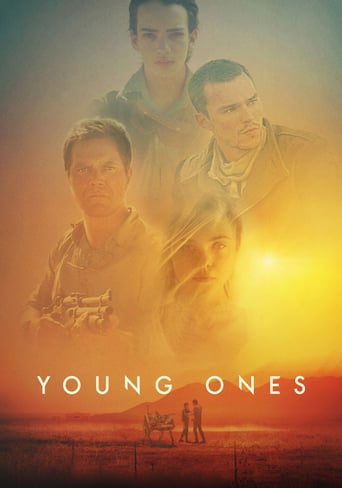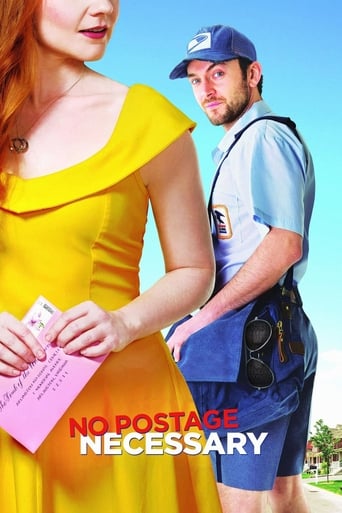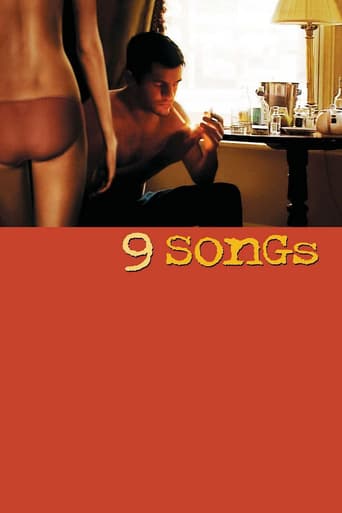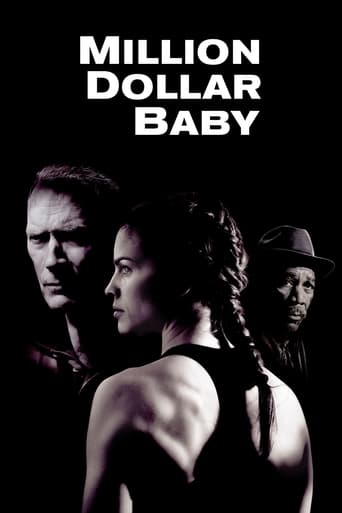The French Lieutenant's Woman (1981)
In this story-within-a-story, Anna is an actress starring opposite Mike in a period piece about the forbidden love between their respective characters, Sarah and Charles. Both actors are involved in serious relationships, but the passionate nature of the script leads to an off-camera love affair as well. While attempting to maintain their composure and professionalism, Anna and Mike struggle to come to terms with their infidelity.
Watch Trailer
Cast


Similar titles
Reviews
Personally I don't much care for the term "chick flick", but "The French Lieutenant's Woman" probably falls under that category - albeit a chick flick of the highest order. Handsomely staged, impeccably crafted, well acted, ingeniously structured....but not as dramatically involving as it should have been, until the bittersweet ending(s). *** out of 4.
it is a beautiful film. for the story and for the grace of adaptation. for the graceful performances of Meryl Streep and James Irons. for the spirit of novel who has the right frame. for atmosphere. and for something else, who escapes to any definition. a film about love and the art of acting. a drama. or just a poem. like the novel. an impressive success of entire team to give the perfect adaptation to a not real comfortable novel for a director. the flavor, the states, the beauty of details, the stories like an impressive ladder. and the bitter air of a search of happiness. it is not easy to define it. only to see. maybe, twice. and, after the final credits, to look for the book. and this is all.
Beautiful, original and intelligent of using a certain source (a book written by John Fowles), changing the perspective presented in it and turning it into a fresh cinematic experience that is as much satisfying than the original source, the film version of "The French Lieutenant's Woman" escapes the sometimes overused routine of following the literature step by step by creating a nice way to compare life with reality, mixing two stories into basically the same context. Harold Pinter's screenplay takes the story from the book, told in the Victorian England, and adds the element of the movie within a movie, dividing it into two segments: the actors playing in a romantic film and the actors life in a current period. Let me organize the situation: in the modern times, two actors (played by Jeremy Irons and Meryl Streep, are shooting a movie whose story takes place in 1800's, with Irons playing an respected biologist engaged to a rich woman who ends up falling in love by the mysterious French Liutenant's woman (Streep), who awaits for his lover to return. During those times where moral was above anything else their romance seems to be faded to failure, almost impossible to exist since she isn't seen with good looks by society constantly called as crazy or as the French Lieutenant's whore. This is practically an unhappy story at first glance. Later, we'll notice the actors life following the same path as the characters they play except the times are other, things are a lot easier for them; they're in love with each other but they're married with other people. And this story seems a happier story than the other, also at first glance. The intersection of both stories serves to show us not only which couple (the real one or the fictional one) might last together but also the period contrasts (there's a scene in which the actors are reading a paper with informations of how things were during the Victorian Era and they are surprised by the facts they learn) The examination one must have of both stories is the relationship between the characters played by Streep and Irons, and the way both have similarities even one being a work of fiction and the other being the reality. The only problem with the film directed by Karel Reisz is the fact we spend more time following the movie within the movie instead of following more of the actors life and their romance, which only had a notable importance when the other story was concluding as well. I'm not saying that the other story wasn't interesting but we should spend an equally balanced time with both segments so that we could see things more fairly, properly presented. Even so, the screenplay is brilliantly written and very original in terms of developing a story that goes to show the distinction between fiction and reality without playing tricks or use of excessive surprises to impress the viewers. But a film is not only its script. "The French Lieutenant's Woman" has an fascinating and careful art direction and sceneries, beautifully made, recreating England of the 19th Century is great details; costumes and clothes are also great; the cinematography is impeccable and one of the most wonderful works I've ever seen. At last, the most interesting aspect of the film is the acting delivered by Meryl Streep (Oscar nominated for this roles, after all she plays two roles) and Jeremy Irons (he deserved a nomination that year, playing one of his first leading roles showing a great talent in carrying the whole film). I've seen them playing another couple in the underrated "The House of the Spirits" and I loved them in that film just as much as in this film. They make acting seem easy whether playing complicated characters like the ones played here or in blockbuster films as well. And their characters go through everything here, love, hate, insanity, possession, kindness, a high range of emotions that very few actors can be natural and have a certain simplicity in playing it. Sparks fly high when they're together! Where do we have the chance to be really happy? In fiction or in reality? True love is that same kind of love we see in pictures or it's different in life? See it for yourself and think of some conclusions by watching this absolutely great film. 10/10
Two film actors named Anna and Mike (Meryl Streep and Jeremy Irons) rehearse their roles for a Victorian period piece and have an affair with each other. Interspersed with the present day scenes are extensive clips from the finished version of the film they're working on: the love story of a gentleman named Charles and a poor woman Sarah who has lost her reputation after having been romantically linked to a French officer. Charles and Sarah, like Mike and Anna, are played by Irons and Streep.The movie-within-a-movie structure makes it possible to examine the expressions of romance in very different eras that still mirror each other in many ways. While the Victorian society is suffocating in its prim and proper moralizing, relationships are not necessarily easier in the liberal modern era either, as it is always difficult to follow one's heart without hurting someone in the process.Technically the film is well made, the historic sets and costumes look good and Streep and Irons are convincing in their double roles. Especially the eponymous Sarah character is full of tragic mystery and understandably carries the film whenever she is on. The pace is slow and peaceful, allowing the romances to develop without haste. In the end the Victorian story gets more attention and is probably what the film is best remembered for, but the present day romance is a tale worth telling too. In any case, I recommend the film for any fan of romantic cinema – it's essentially two romances in one.

